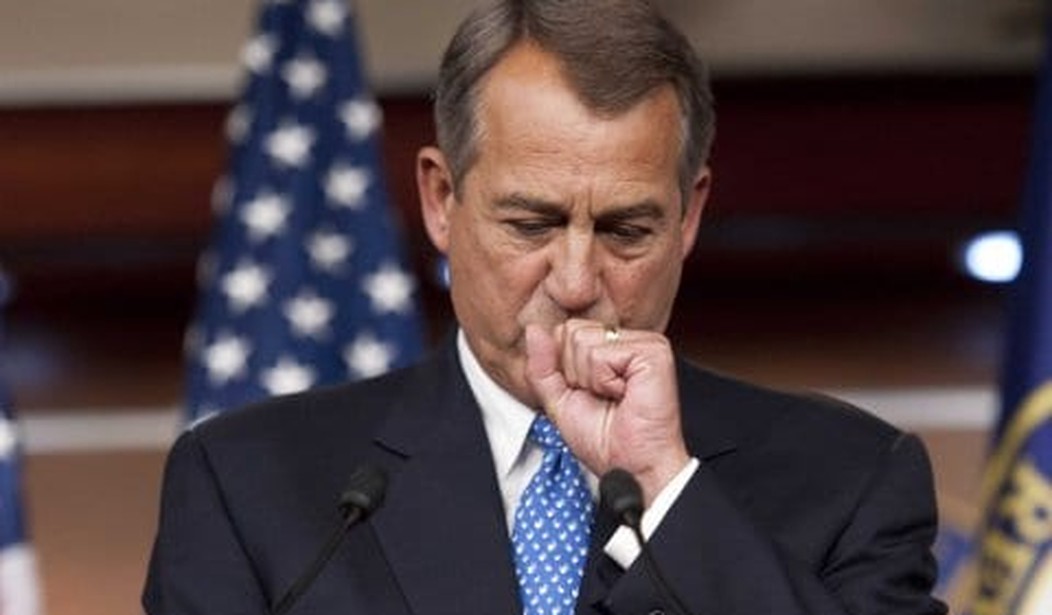WASHINGTON – The ball is back in House Speaker John Boehner’s court.
As expected, the Senate, along party lines, adopted a stop-gap spending measure on Friday that funds the federal government through Nov. 15. In so doing the upper chamber removed a House-passed provision defunding the Affordable Care Act, better known as Obamacare, much to the chagrin of Tea Party conservatives.
Now the bill returns to the House where leaders of the GOP majority are considering how to handle it – approve the Senate-passed version, thus avoiding the possibility of an Oct. 1 governmental shutdown, or amend it further, opening further negotiations with the upper chamber and making it increasingly difficult to meet the deadline for the approaching end of the federal fiscal year.
The big issue is Obamacare. Boehner had hoped to pass the temporary spending bill, known as a continuing resolution, without significant delay and postpone the battle over the Affordable Care Act until the House addresses legislation raising the nation’s $16.7 trillion debt ceiling.
House Republican leaders had intended to include a provision postponing the full implementation of Obamacare, slated to take effect Oct. 1, for one year in the debt ceiling bill. But a group of as many as 50 conservative Republican lawmakers registered objections to that strategy, pushing Boehner to draw a line in the continuing resolution negotiations, closing the government’s doors if necessary.
On Friday, National Review reported that a group of House conservatives engaged in a conference call Thursday with Sen. Ted Cruz (R-Texas), who led the Senate fight against deleting the Obamacare provision. Cruz, the magazine said, “strongly advised” them to oppose the Boehner strategy of postponing the fight until the debt ceiling debate. Soon thereafter the Boehner plan began to fizzle.
“The House was always in a position where it was going to lead,” Cruz told reporters after the Senate vote. “And I know from my perspective…we look forward to helping and supporting the House, standing up and doing the right thing for the American people.”
Boehner acknowledged on Thursday that the House is unlikely to accept the Senate-passed continuing resolution without some alteration but he added that he doesn’t anticipate a governmental shutdown as a result.
Despite lacking an apparent plan of action and facing a looming deadline, the House Republican caucus isn’t scheduled to hash matters out in another closed-door meeting until early Saturday afternoon.
GOP lawmakers with Tea Party ties aren’t waiting for Boehner to act. Rep. Tom Graves (R-Ga.) announced that he intends to offer an amendment to the Senate-passed CR implementing a one-year delay in Obamacare funding.
The Defund Obamacare Act was the first bill Graves introduced after he entered Congress in 2010. He reintroduced it in every subsequent Congress, teaming with Cruz, who introduced companion legislation in the Senate this year. The language from that bill formed the Obamacare defunding provision in the House version of the continuing resolution, which eventually passed by a vote of 230-189.
Regardless, Senate Democratic Leader Harry Reid, of Nevada, who controls the flow of legislation to the upper chamber’s floor, said he doesn’t intend to entertain further Obamacare proposals as part of the spending bill.
“They need to accept what we just passed,” Reid said after the Senate vote. “Let’s be absolutely clear — we are going to accept nothing that relates to Obamacare. There’s a time and place for everything, and this is not that time or place.”
President Obama weighed in on the issue Friday afternoon, praising the Senate for passing the stop-gap spending plan and urging the House to follow suit.
“Past shutdowns have disrupted the economy, and this shutdown would as well,” Obama said. “It would throw a wrench into the gears of our economy at a time when those gears have gained some traction. And that’s why many Republican senators and many Republican governors have urged Republicans to knock it off, pass a budget and move on. Let’s get this done.”
Obama characterized calls to defund the Affordable Care Act “political grandstanding,” insisting that the law’s repeal is “not going to happen.” The president further noted that a shutdown could result in a host of ills, ranging from a disruption in the delivery of military pay to the potential layoff of as many as 800,000 federal workers.
Brendan Buck, a Boehner spokesman, released a statement asserting that the House intends to “take action that reflects the fundamental fact that Americans don’t want a government shutdown and they don’t want the train wreck that is Obamacare. Grandstanding from the president, who refuses to even be a part of the process, won’t bring Congress any closer to a resolution.”
Rep. Justin Amash (R-Mich.) added that it is “simply pathetic” that Obama has exhibited a willingness to negotiate with Iran “but refuses to negotiate with Republicans. He’d rather shut down government than compromise.”
Boehner, in all likelihood, has the votes necessary to adopt the Senate-passed version of the continuing resolution, pasting together the votes of some members of the House Republican majority with almost all Democrats.
But the speaker has in this case applied the so-called Hastert Rule, named after former House Speaker Denny Hastert, an Illinois Republican, meaning he won’t call up any bill for consideration that doesn’t carry the support of the majority of the House GOP caucus.









Join the conversation as a VIP Member